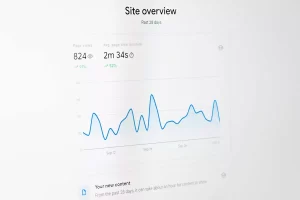Artificial Intelligence (AI) has become an integral part of our lives, influencing almost every aspect of it. One of the areas where artificial intelligence has had a significant impact is web design. However, along with the advantages it brings, there are several important ethical considerations related to the use of artificial intelligence in web design. This article explores these ethical considerations, highlighting the importance of maintaining a user-centered design in the automation process.
Transparency and Explainability of Artificial Intelligence Algorithms
One of the ethically significant and wide-ranging aspects of using artificial intelligence in web design is ensuring transparency. When artificial intelligence algorithms are used to make decisions in web design, it is essential that these decisions are transparent and explainable. Users must understand how and why these decisions were made to avoid any suspicion or distrust.
Additionally, there should be a mechanism through which users can raise objections or correct decisions made by artificial intelligence algorithms, especially when these decisions are inaccurate or have a negative impact on user experience. Developers and web designers need to pay special attention to this aspect to maintain users’ trust in the websites they create.
Biased Algorithms and Justice
Another ethical concern in artificial intelligence powered web design is the bias of algorithms. Artificial intelligence systems can unintentionally learn biases present in the data they are trained on, which can lead to unfair or discriminatory outcomes. For example, if an artificial intelligence powered web design system is trained on biased data, it may inadvertently favor certain demographics over others, resulting in unequal experiences for users.
It is crucial for web designers and developers to carefully filter and review the training data for artificial intelligence systems to minimize biases. Additionally, continuous monitoring and auditing of artificial intelligence powered web design systems should be conducted to identify and rectify any biases that may arise over time.
Data Privacy and Security
The adoption of artificial intelligence in web design often involves collecting and analyzing significant volumes of user data to tailor and personalize their platform experience. While personalization can enhance user satisfaction, it also raises significant ethical concerns related to data privacy and security.
Web designers must prioritize user consent and data protection. Users should be informed about the data collected, how it will be used, and should have the option to opt out if they wish. Furthermore, robust security measures should be in place to protect user data from unauthorized access or security breaches.
Preserving Human Oversight
While artificial intelligence can automate many aspects of web design, it is crucial to maintain human oversight throughout the process. Human designers bring creativity, empathy, and a deep understanding of user needs, aspects that artificial intelligence alone cannot replicate. Design decisions should ultimately be made by humans, with artificial intelligence serving as a tool to assist and optimize the design process. This collaboration between humans and artificial intelligence ensures that the final product is not only aesthetically pleasing but also aligned with human values and ethical principles.
Accessibility and Inclusion
Web accessibility is a critical ethical consideration in artificial intelligence powered web design. Designers must ensure that websites are accessible to all users, regardless of disabilities. Artificial intelligence can play a role in identifying accessibility issues and suggesting improvements, but the responsibility for implementing these changes and ensuring inclusion lies with the designers.
Testing and Evaluation
Regularly examining and evaluating AI-influenced web designs is of paramount ethical importance. Designers should regularly assess the impact of decisions made by artificial intelligence on user experience and make adjustments accordingly. This iterative approach helps refine the design and mitigate any ethical concerns that may arise.
Education and Ethical Guidelines
Ultimately, the education of web designers and developers is vital in addressing ethical concerns related to artificial intelligence in web design. Professionals in the field should be familiar with ethical principles and guidelines for the use of artificial intelligence. Additionally, industry organizations and regulatory bodies can play a role in establishing and enforcing ethical standards for AI-powered web design.
The use of artificial intelligence in web design offers numerous benefits but also significant ethical responsibilities. To strike a balance between automation and user-centered design, it is crucial to be transparent, manage algorithmic biases, protect data privacy, maintain human oversight, and ensure websites are accessible and inclusive. By adhering to these ethical considerations, we can create a better and more ethical online environment for all users.
Learn about AI-Infused Visual Aesthetics in Web Design
Urmărește-ne pe rețelele sociale:
Instagram: https://www.instagram.com/securemenow/
Facebook: https://www.facebook.com/securmenow
Noi oferim servicii de Web Design and WEB AI. Contactează-ne







